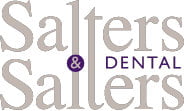Placement of dental implants usually does not create a great deal of pain. General postoperative instructions apply, with the exception of rinsing.
Remember DO NOT rinse with the warm salt water. Use the prescription rinse chlorhexidine (Corsodyl), an antibacterial medicine to assist in the healing and keep the site healthy.
Make sure that you get rid of any toothpaste residue prior to rinsing and then DO NOT eat or drink for 30 minutes after rinsing. This will maximize the potency of the medication.
Some degree of discomfort and pain arises as the numbness subsides. At the first sign of pain or discomfort, take 2 Nurofen tablets or if you are unable to do so as a result of any other medical conditions, paracetamol or co-codamol should be taken. Any pain medications can cause nausea and vomiting. It is very important that you have some food in your stomach before you take them.
DO NOT DISTURB THE AREA OF SURGERY. Allowing the tissues to rest undisturbed assists the healing process. Avoid vigorous chewing, excessive spitting, or aggressive rinsing during the healing phase. Initial healing may be delayed, active bleeding restarted, or infection introduced, otherwise.
Expect minor bleeding or oozing. If bleeding persists, continue pressure on a fresh sponge for an additional 30 minutes to an hour. Biting on a moist teabag wrapped in gauze may help control persistent oozing from the surgical site. Tea contains tannic acid, which helps promote blood clotting.
Firm pressure for 15-30 minutes usually controls the problem. If you check too frequently, (every few minutes), the blood clot will not form properly and bleeding will continue. Should active bleeding persist, please call the office or the doctor’s emergency number.
Limit physical activity during the first 24-48 hours after surgery. Over exertion may lead to postoperative bleeding and discomfort. When you lie down keep your head elevated on a pillow. You may wish to place a towel on your pillowcase to avoid staining from any blood-tainted saliva.
Pain following oral surgery will be most severe within the first 6-8 hours after the operation. Please do not drink alcoholic beverages while taking prescription medication. Do not wait for the pain to become unbearable before using some form of pain medication, as then it will be more difficult to control. Moderate to severe pain usually does not last longer than 48 hours. And mild discomfort usually diminishes after the third day. Please contact us if you experience prolonged severe pain so that we can help make you more comfortable.
Swelling related to the surgical procedure may occur following certain types of procedures. An ice pack should be placed on the side of your face for 20 minutes then taken off for 10 minutes and repeated. Anti-inflammatory medications, such as Nurofen, also help decrease swelling.
Drink many fluids. clear beverages, ginger ale, water, teas, soda, broth, soups, or juices are all suitable. Avoid hot liquids until the numbness has worn off, and the bleeding has stopped.
AVOID USING A STRAW FOR SEVERAL DAYS. It may dislodge the blood clot and delay healing.
Soft, cool foods are most easily tolerated. A nutritious diet is most important to your comfort and temperament. Remember that eating can prevent nausea sometimes associated with certain medications. Supplements such as Ensure, Carnation Instant Breakfast and/or yogurt supply excellent added nutrition.
DO NOT EAT ANY POPCORN, POPPY SEEDS, SESAME SEEDS OR SEEDED FRUITS. THEY CAN GET STUCK AND CAUSE INFECTION!
Take any special medication we have prescribed on the special dosing schedule. Yogurt with active cultures or acidophilus should be taken while on antibiotics to prevent diarrhoea. It is important to take the antibiotics to completion. If you are given antibiotics and take birth control pills, you should be aware that the birth control may become ineffective, therefore take appropriate precautions.
Take any regularly scheduled medication (for diabetes, high blood pressure, etc.) on your regular schedule unless advised to do otherwise.
Try to avoid smoking completely, as it tends to delay healing and interfere with regeneration.
The day following surgery and thereafter, rinse your mouth very gently and carefully with 1 teaspoon of salt to a large glass of warm water. Repeat three times a day until remaining soreness subsides. Sometimes a soft diet may be necessary for the first few days following surgery. Most patients are able to resume regular food intake within a short time.
Bruising marks may appear on the skin of the face during the first few days after surgery. Should any undue reaction or complications arise, notify the office immediately.
Bhavin Pitamber 07866 52 54 55
